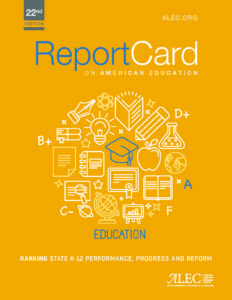
We’re all home-schoolers now. Let’s learn from home-schooler experience: Joshua Higginbotham
The kids are home for spring break, and they might not be going back to school. This is our new reality during the coronavirus pandemic. It’s clear the education system needs alternatives, and it’s time to look at what advocates in the school choice movement have been doing for years.
In my state of West Virginia, we have prioritized school choice. House Bill 206, which passed last year, empowered educators, leaving decisions about teacher pay with counties rather than state bureaucrats. It also lets parents decide which school in the county they want their child to attend.
As I write, 45 states have extended their original closure dates to varying degrees. Combined with district-level closures in the nine other states, “at least 95,000 U.S. public and private schools are closed, are scheduled to close, or were closed and later reopened,” according to Education Week.
To put it in perspective, Education Week notes that there “are 98,277 public schools in the U.S. and almost 50.8 million public school students, according to the National Center for Education Statistics.”
Kansas has closed its schools for the academic year, and others, such as California, have said they might follow suit. And now, parents all over the country are scrambling to figure out how best to educate their children in the meantime. Public schools, for their part, are racing to put their classes online, but many have only limited experience with the technology.
Government often likes to reinvent the wheel any time it must try something new. But finding educational alternatives is nothing new to the folks in the school choice movement. They’ve been doing it for years. There is a wealth of options out there for parents looking to home-school their children in these uncertain times from groups with experience and expertise in the space.
Homeschool Legal Defense Association has set up a website with “7 Simple Steps to Start Homeschooling.” K12 Inc., one of the largest online schooling groups in the country, has created a website for “Coronavirus School Closing Solutions and Alternatives.” Prenda, a network of in-home microschools that operate autonomously across the nation, has made its programming available for just $100 for the rest of the year. There is also unschooling, which is more informal and learner-directed.
For more, the folks at National School Choice Week are maintaining a list of free online resources and updating it regularly on their website. The Software & Information Industry Association has also created the website TechforLearners.org, where they hope to catalog all the free and discounted resources available during the outbreak. The Center for Education Reform is also maintaining and updating a list of resources.
Those are just a few options on an ever-growing list of options being made available to parents, teachers, and students during this national crisis. The response to this emergency has been truly amazing. People are standing up and, in the absence of government, looking out for one another.
The traditional public school system would be well served if they worked with these proven providers, followed their blueprints for success, or just didn’t fear a little competition.
For example, some states, such as Pennsylvania and Oklahoma, have included virtual schools in their school shutdown orders. Why close virtual schools at a time when our leaders are advising social distancing? Public schools simply don’t want their virtual counterparts to remain open.
But we’re all home-schoolers now. Ultimately, the best thing government can do for the education system is simply get out of the way and let the marketplace provide options that work best in these trying times. But they fear that the country will soon know what we school choice supporters have known for a while. Parents and students have a choice when it comes to their education.
The education status quo doesn’t work for everyone, and it clearly doesn’t work in every situation. Let parents make that choice for themselves, and let’s get through this together.
Joshua Higginbotham is a member of the West Virginia House of Delegates and vice chairman of the House Education Committee. This column originally appeared in the Washington Examiner.



